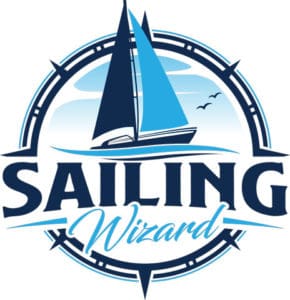Sailing is one of those hobbies that once you’ve gotten the hang of it, it’s not something that you want to let go of. You could easily end up spending your days daydreaming about an adventure sailing around the world and visiting the most amazing exotic locations. But before you can do that, you need to learn how to sail first. So how long does it take to learn to sail?
Learning how to sail can take anywhere from a few hours to learn the basics to a few months to obtain a Yachtmaster certification. Typically, it takes a 1-2 week course to learn the fundamentals and being able to charter a yacht and go sailing, while it takes about 10 days to obtain a basic sailing certification. However, to truly become a master at it could take your whole life.
Now that would’ve given you the basic answer to the question, but you’ll notice that I’ve touched on a few different interesting topics, but don’t worry, I’ll go into more detail in this article and hopefully I can get you on your way to learning how to sail in no time. Well, after you conclude this article, of course.
So buckle up, we’re setting sail…

How quickly can you learn to sail?
To answer this question as accurately and comprehensively as possible, we need to break it down into a few smaller parts to determine exactly what your goals are and what is meant by “learn”.
Learn the basics of sailing
If we are referring to just learning in terms of getting onto a boat and someone showing you the basics of sailing up to the point where you can take the wheel for a while and sail a bit, well, this can take up to a few hours only.
Here’s a video that shows how quickly you can pick up the basics of sailing:
How long before you can sail by yourself?
Learning in terms of being able to charter a yacht and going out by yourself for a day out on the open waters, well, then this takes a bit longer. To learn the fundamentals of sailing up to the point where you can comfortably do it by yourself would take anywhere from a couple of days to a couple of weeks, and around 10 days to obtain a sailing certification. My best advice is to go for a 1-2 week course, after which you should typically be comfortable at the helm.
Learn enough to sail around the world
Learning in terms of buying a boat and setting sail for a trip around the world or to a destination unknown would probably take another few weeks added to the 2-week course from the previous section.
There are many factors to consider when it comes to sailing than just the basic fundamentals, that you would need to not only learn but understand completely and become good at to embark on a journey like a trip somewhere around the world.
The best way to do this, however, is to take some time off, immerse yourself in the world of sailing and once you have the basics down and you feel comfortable in your skipper boots, just pack your bags and go for it. There’s nothing like experience to teach you the real ins and outs of any new skill, and what better way to learn than with the wind beneath your sails and the sun on your face.
How Long to Become a Qualified Yachtmaster?
Learning in terms of becoming a Yachtmaster and obtaining the subsequent RYA/MCA Yachtmaster Offshore Certificate of Competence would require a couple of months of training and experience and you would need to meet the minimum criteria with regards to sailing and general maritime safety requirements etc.
What Qualifications do You Need to Charter a Sailing Yacht?
The answer to this question would entirely depend on the country, state, or even area that you want to charter the yacht and where you plan on sailing to.
Technically, for the most part, you don’t need any qualifications and most operators would only require you to prove that you have some experience and would be able to safely navigate the waters with their yacht.
For the purpose of this article, I will keep the answer to this question related to the United States only, but note that the requirements would be different depending on your country or region.
The United States
In the US, most states have some sort of mandate requiring a safety course which could be dependent on the age of the operator. There are, however, some states that don’t have this requirement and thus have no legal requirement at all when it comes to boat operators. The best thing is to check your individual state for the exact requirements before setting sail.
The Caribbean
If you plan to sail down to the Caribbean, then once again, no official qualifications needed aside from a sailing resume in case you get asked for it and tested on your sailing knowledge, so be prepared to answer a few technical questions if needed.
Outside the US and Caribbean
The requirements vary depending on where you plan to charter a yacht, but the typical requirement is to have a sailing certificate like, or equivalent to the RYA Day Skipper Practical, International Certificate of Competence (ICC), ASA 103, 104 or above.
What Skills Do You Need To Sail?
There are many essential skills that you would have learned during your training and even more that you might have picked up through experience by being out on the water with your boat. Aside from those, there might be a few that you are not aware of could prove to be very helpful as a sailor.
Here are a few skills that would make you a better sailor:
- Being able to tie different knots
- Understanding whether and wind
- Being able to do small repairs if needed
- Navigation and being able to read maps
- Basic plumbing and electrical repairs when needed
- Anchoring
- Fishing, although not essential, could prove to be quite a useful skill at times
Is Sailing Hard to Learn?
As mentioned at the beginning of this article, understanding and learning the basics of sailing can take a matter of hours only, but becoming good at it will take much longer and require more dedication.
In terms of difficulty level, sailing and learning to sail is quite easy for the basics. Even earning your qualifications as a Yachtmaster is not that hard to obtain, but getting really good at it and eventually mastering the art of sailing, this requires a lifelong commitment and overcoming all the challenges along the way.
How expensive is sailing?
The cost of sailing can range from affordable for most people to too expensive for almost all people!
There are so many factors to consider but I’ll try to give an average range for a low-budget and medium-budget yacht to give you a basic idea of the costs. There is a series of one-off fees to pay like the price of the boat and all the necessary equipment and registration etc, and then there are yearly and/or monthly fees like insurance, maintenance, docking, etc.
A low-budget boat would cost your around $3,000 as a once-off fee and around $1,500 per year after that.
A medium-budget boat would cost you around $30,000 once-off and around $7,000 yearly after that.
Can you teach yourself to sail?
Although it might be entirely possible to teach yourself how to sail, there are a few things that would be much better if you learned it hands-on from someone.
My advice would be a take a short course to learn all the fundamentals at least from a qualified instructor, although an experienced friend or family member could work as too, and then you can learn and “teach” yourself as you sail along.
What is the best way to learn to sail?
The best way, however, in my opinion, is to take some time off and immerse yourself in the world of sailing for a couple of weeks.
Here’s my take:
Take a couple of weeks off, do a 1-2 weeks course, and obtain your sailing certification. Charter a yacht or take the boat that you bought out onto the water and set sail, with a plan and some destinations mapped out of course.
When it’s time to get back home, try to convince yourself to do so, and come home, cause by now you would be making plans of how you can just carry on sailing forever since you would most likely fall in love with it!
How do you get good at sailing?
Getting good at sailing is a combination of skill, experience, and heart.
You have to learn and master all the skills needed to be a good sailor, some of which I mentioned earlier in this article. Feel free to scroll back up and read them again.
Spend as much time as you can on the water with your boat. There’s no substitute for experience and you will learn all your most valuable sailing lessons by having to respond to and react to different situations that you will find yourself and your boat in.
Lastly, if sailing is your passion and gives you a feeling like no other on this planet, then you’re halfway there already and just need to carry on what you’re doing, cause you’ll be there before you know it.
Conclusion
I hope you’ve gotten all the answers that you might have had about learning how to sail and that you’re as excited to get started as I am for you too.
Bon voyage.
